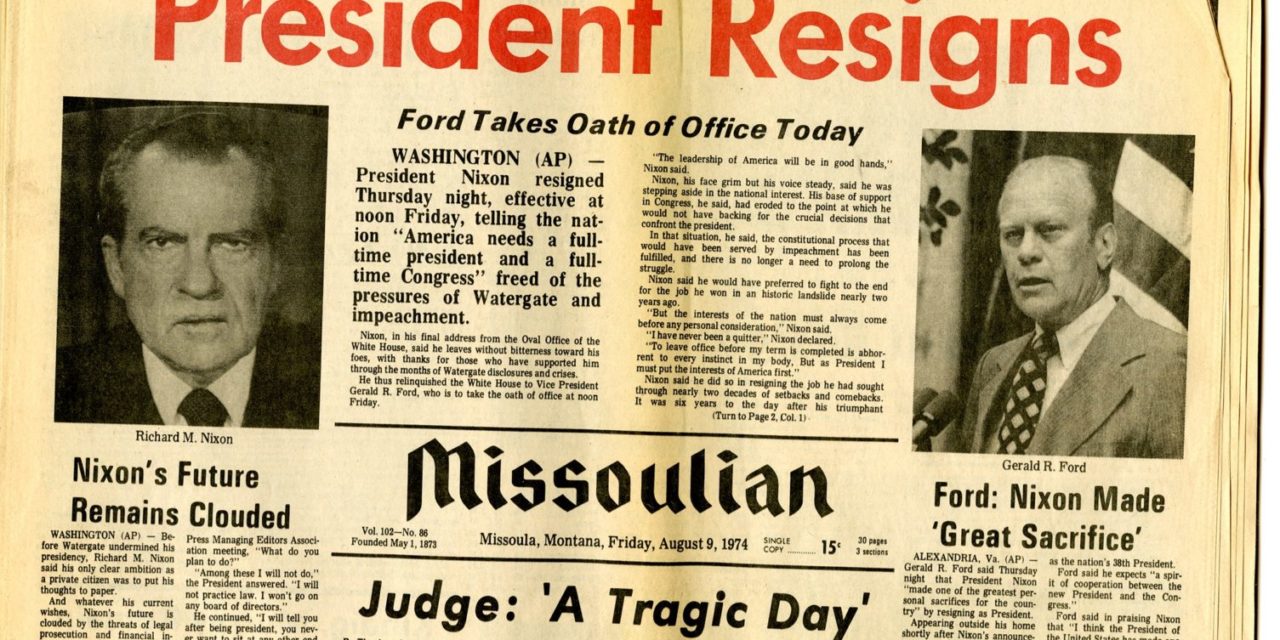For those old enough to remember, the image of President Richard M. Nixon smiling farewell and enigmatically raising his arms in a victory or peace salute before departing from a helicopter on the White House lawn is seared into the memory of many American minds.
For others, the iconic image has been passed down through the ages in history books, documentaries,, news broadcasts and more.
After the helicopter door was closed, the Nixon family traveled home to San Clemente, Calif., leaving a nation stunned.
He was the first and only U.S. president to resign while in office.
Minutes after his departure, Vice President Gerald R. Ford was sworn in as the 38th president of the United States in the East Room of the White House.
After taking the oath of office, President Ford spoke to the nation in a television address, famously declaring, “My fellow Americans, our long national nightmare is over.” He later pardoned Nixon for any crimes he may have committed while in office, explaining that he wanted to end the national divisions created by the Watergate scandal.
The resignation was the climax to nearly two years of angst that started on June 17, 1972, when five men, including a salaried security coordinator for President Nixon’s reelection committee, were arrested for breaking into and illegally wiretapping the Democratic National Committee headquarters in the Washington, D.C., now-iconic Watergate complex.
Soon after, two other former White House aides were implicated in the break-in, but the Nixon administration denied any involvement. Later that year, reporters Carl Bernstein and Bob Woodward of The Washington Post discovered a higher-echelon conspiracy surrounding the incident, and a political scandal of unprecedented magnitude erupted, according to History.com.
In May 1973, the Senate Select Committee on Presidential Campaign Activities, headed by Senator Sam Ervin of North Carolina, began televised proceedings on the rapidly escalating Watergate affair. One week later, Harvard law professor Archibald Cox was sworn in as special Watergate prosecutor. During the Senate hearings, former White House legal counsel John Dean testified that the Watergate break-in had been approved by former Attorney General John Mitchell with the knowledge of White House advisers John Ehrlichman and H.R. Haldeman, and that President Nixon had been aware of the cover-up.
Some people drew comparisons between the impeachment hearings of President Trump to the Nixon Senate Hearings. In the end, the House impeached Trump, the Senate did not. Trump remains in office.
Image Sources
- President Resigns: Facebook







